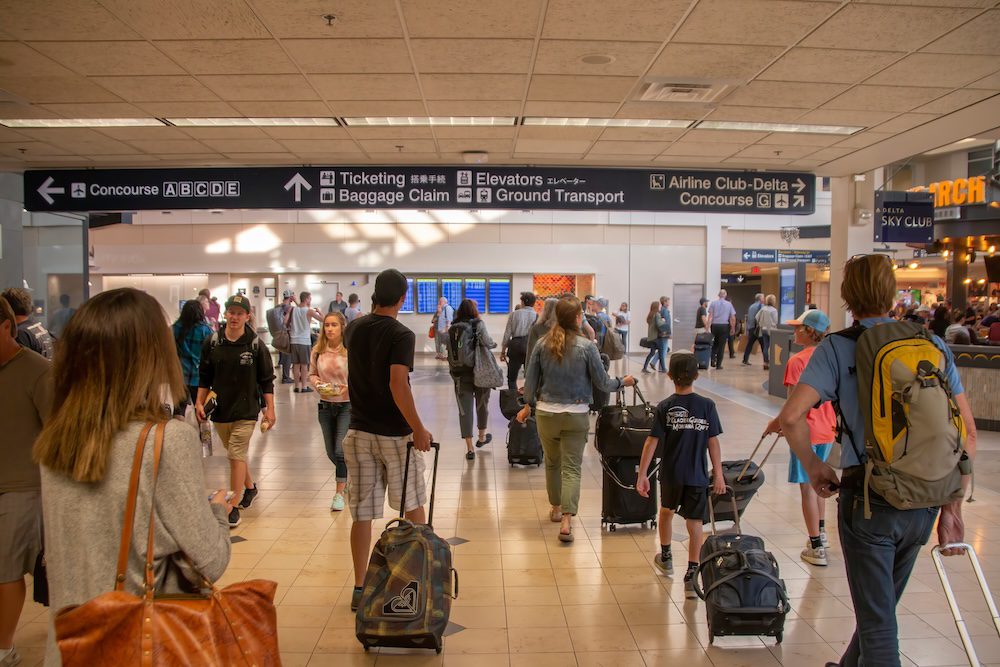Since the easing of travel restrictions in the aftermath of the COVID-19 pandemic, the world’s borders have opened up… but in more ways than one.
Visa-free travel is now more widespread across the world than ever before according to a new list of the world’s most powerful passports.
The recently released 2024 Henley Passport Index found that an unprecedented six countries share the honour of having the world’s most powerful passport.
But more than this, those countries have visa-free access to a record-breaking number of destinations.
According to the index, which ranks the world’s passports according to the number of destinations their holders can access without a prior visa, four European Union (EU) member states – France, Germany, Italy, and Spain – have joined perennial high flyers Japan and Singapore at the top of the rankings, with citizens from these six nations able to visit 194 destinations (out of 227) around the globe visa-free.
Just behind these countries are South Korea, Sweden and Finland (193 destinations), and Austria, Denmark, Ireland and the Netherlands (192 destinations).
Where does Australia sit?

In equal sixth place, with visa-free travel to an impressive 189 nations, are the passports of Australia and New Zealand, which improved their rankings from the last report.
Ranking just below the Australasian countries, are the United States and Canada, passport holders of which have access to 188 destinations.
Interestingly, it has been 10 years (2014) since the US and UK, whose citizens have access to 191 destinations, jointly held the top spot on the list.
Passport disparity
Based on International Air Transport Association (IATA) data, the list however does highlight a burgeoning gap between the world’s most powerful passports and those at the bottom of the index, with the difference “now wider than ever”.
“The average number of destinations travellers are able to access visa-free has nearly doubled from 58 in 2006 to 111 in 2024,” said Dr Christian Kaelin, Chairman of Henley & Partners and the inventor of the passport index concept.

“However, as we enter the new year, the top-ranked countries are now able to travel to a staggering 166 more destinations visa-free than Afghanistan, which sits at the bottom of the ranking with access to just 28 countries without a visa.”
Moving up
Over the 19-year history of the ranking, there has been a consistent trend towards more travel freedom. But none showed greater progress in the last year than the United Arab Emirates, which added a whopping 106 destinations to its visa-free score in the last decade.
This improvement has seen the UAE climb 44 places in the ranking from 55th to 11th position.
Elsewhere, the Ukraine and China also significantly improved their rankings since 2014, gaining 21 places each. In the last year alone, both countries have moved up an additional two spots, with Ukraine now in 32nd place (148 destinations) and China in 62nd position (85 destinations – compared to just 44 in 2014).
Russia (51st, 119 destinations) has seen a net gain of 24 destinations over the past decade but has been stagnated since 2017.
Airports’ role

IATA Senior Vice President Commercial Products and Services Frédéric Léger says airport processes will need to continue to improve to manage an expected doubling of passenger traffic in the next 15 years.
“Checking and verifying travel documents more often than not needs to be performed manually,” he stated.
“With the expected continued growth in air travel, this task needs to be automated to a much higher degree.
“Passengers have clearly communicated that they are willing to share their data in advance of travel to achieve this goal.”
More travel freedom = better economy?
According to Henley & Partners research, the relationship between travel freedom and economic performance are intrinsically linked.
“The overarching narrative that links greater economic performance with visa-free access and openness to international trade, investment, and the exchange of skills is once again powerfully highlighted, underpinned, and backed by the research shown in this year’s report,” former Chief Economist at Lloyds Bank, Professor Trevor Williams, said of the Henley Global Mobility Report 2024 Q1 report.
“In many respects, future global economic progress depends upon lagging regions [like ASEAN and BRICS] showing substantial improvement in their openness to each other, and on wealthier blocs and countries showing more openness to developing nations.”
Want to know the top five destinations for lost and stolen passports among Australians, as well as how many emergency passports were issued? We break it down.


